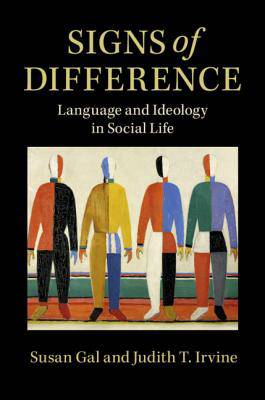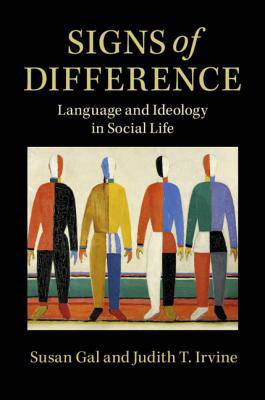
Je cadeautjes zeker op tijd in huis hebben voor de feestdagen? Kom langs in onze winkels en vind het perfecte geschenk!
- Afhalen na 1 uur in een winkel met voorraad
- Gratis thuislevering in België vanaf € 30
- Ruim aanbod met 7 miljoen producten
Je cadeautjes zeker op tijd in huis hebben voor de feestdagen? Kom langs in onze winkels en vind het perfecte geschenk!
- Afhalen na 1 uur in een winkel met voorraad
- Gratis thuislevering in België vanaf € 30
- Ruim aanbod met 7 miljoen producten
Zoeken
Signs of Difference
Language and Ideology in Social Life
Susan Gal, Judith T Irvine
Paperback | Engels
€ 41,95
+ 83 punten
Uitvoering
Omschrijving
How are peoples' ideas about languages, ways of speaking and expressive styles shaped by their social positions and values? How is difference, in language and in social life, made - and unmade? How and why are some differences persuasive as the basis for action, while other differences are ignored or erased? Written by two recognised authorities on language and culture, this book argues that ideological work of all kinds is fundamentally communicative, and that social positions, projects and historical moments influence, and are influenced by, people's ideas about communicative practices. Neither true nor false, ideologies are positioned and partial visions of the world, relying on comparison and perspective; they exploit differences in expressive features - linguistic and otherwise - to construct convincing stereotypes of people, spaces and activities. Using detailed ethnographic, historical and contemporary examples, this outstanding book shows readers how to analyse ideological work semiotically.
Specificaties
Betrokkenen
- Auteur(s):
- Uitgeverij:
Inhoud
- Aantal bladzijden:
- 326
- Taal:
- Engels
Eigenschappen
- Productcode (EAN):
- 9781108741293
- Verschijningsdatum:
- 27/06/2019
- Uitvoering:
- Paperback
- Formaat:
- Trade paperback (VS)
- Afmetingen:
- 211 mm x 229 mm
- Gewicht:
- 453 g

Alleen bij Standaard Boekhandel
+ 83 punten op je klantenkaart van Standaard Boekhandel
Beoordelingen
We publiceren alleen reviews die voldoen aan de voorwaarden voor reviews. Bekijk onze voorwaarden voor reviews.









